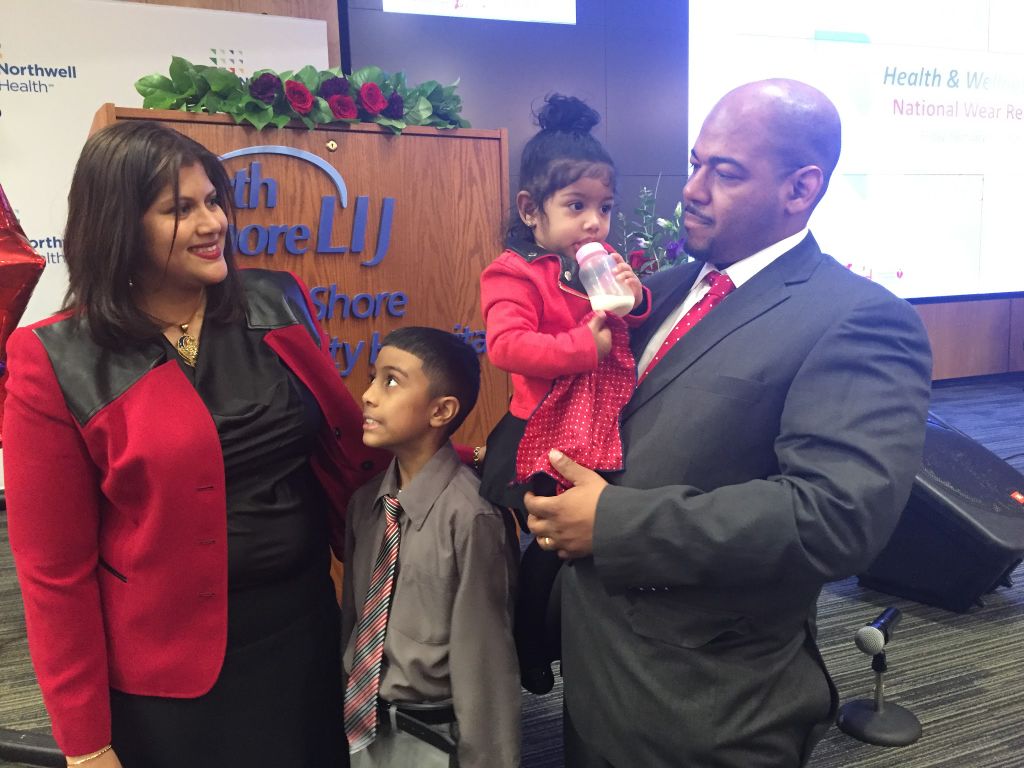At 35, Christine Budwha Giles was a flourishing attorney, married to a wonderful husband and had recently given birth to a healthy second child in the fall of 2014.
But just a couple of months later, Giles would hop on a life-changing roller coaster of endless doctors’ visits and surgeries.
“It didn’t dawn on me that I was going to die,” said Giles, speaking at Northwell Health’s annual Go Red for Women event at North Shore University Hospital.
Northwell Health holds the yearly event in support of National Wear Red Day, an initiative developed by the American Heart Association to raise awareness about women health issues where every attendee dawns red attire.
“I thought I was a unique woman,” said Giles, a resident of Queens Village. “Apparently not, since I’ve realized quite a lot of women go through what I’ve gone through,” continued Giles, who appeared emotional as she recounted how her life went through “chaos” then calm with help from North Shore Hospital.
Giles’ medical problems began in February 2015 when she began having shortness of breath and congestion, and visited her family physician for treatment.
“I thought it was a flu and all I needed were two packs of antibiotics,” she said. “Oh, it’s nothing, give me a shot and I’ll be fine.”
During the doctor’s visit, she said, she began “turning a shade of blue.”
It was then her doctor realized it was something serious and she had to call 911.
Giles was transported to North Shore University Hospital where she was treated in the intensive-care unit.
Results of the tests ran came back and she was diagnosed with severe heart failure, a condition that’s growing among new mothers.
In September 2015, she was implanted with subcutaneous defibrillator, which protects her from sudden cardiac arrest.
The new device called subcutaneous ICD was used in stabilizing her. S-ICD is implanted under the skin and delivers an electric shock to the heart to treat a dangerously rapid heartbeat.
“Because she was so young, we were able to use a new device that goes under the skin, shocks the heart externally if anything goes wrong,” said Dr. Apoor Patel, the director of electrophysiology at North Shore University Hospital.
The new device was used to stabilize her.
SubQ is implanted under the skin, thus creating minimal scarring for the patient and ease for doctors during checkups. The device downloads the carrier’s health information during doctor’s visits.
Before she was outfitted with the new high-tech device, Giles was medicated for months and had to wear a 10-pound external life vest defibrillator every hour of the day except when she needed to shower.
“It even scared the court officers when I went to work with the blinking red light,” she said. “But I’m here today because of Northwell Health. Maya Angelou speaks of a phenomenal woman. I am that phenomenal woman and I’m happy to be alive.”



